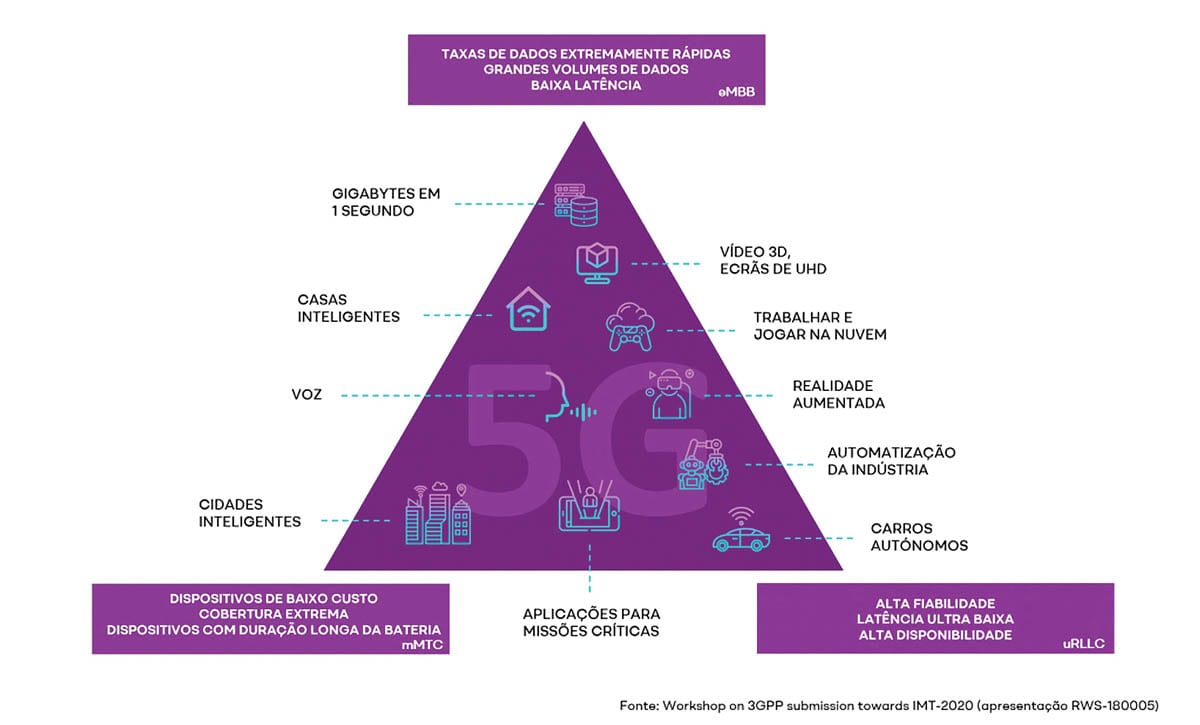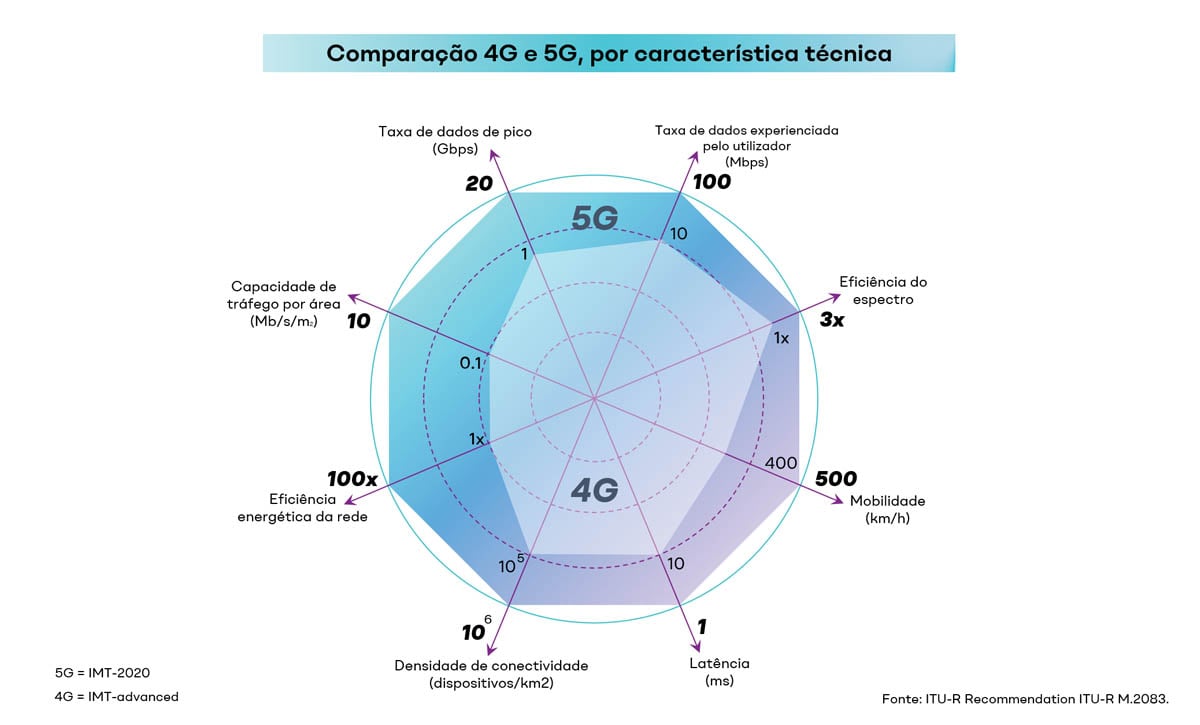Catarina de Medeiros Carreiro, Abreu Advogados
Jaime Lino Neto, Abreu Advogados
5G (the fifth-generation mobile network) will be one of the drivers of the implementation of new technologies during the next decade and the advantages of this disruptive technology are announced every day.
It is anticipated in particular that, compared to 4G, 5G will provide faster speed, more reliable connections and lower latencies (i.e. less delay between order and action), thus enabling more flexibility as to the transaction of a higher volume of data and the ability to cater for segments with high bandwidth requirements. These dynamic elements of 5G could revolutionize the way we currently live, making digital experiences increasingly immersive, hyper-personalised and in real-time, increasing the transition between the offline (analogue) world and an online (digital) world.
In Portugal, the National Communications Authority (“ANACOM”) established that, regarding the allocation of rights of use of 5G frequencies to telecommunications operators (in 700 MHz, 900 MHz, 2.1 GHz, 2.6 GHz bands and 3.6 GHz), a competitive selection process, more specifically an auction, would be more appropriate. ANACOM thus approved the Regulation that establishes the auction’s operating rules, aiming at promoting greater competition in the market and offering more advantages for the respective users, more attractive prices and a greater choice.
The total amount of bids involved already exceeds € 339 million, and this sum increases every day and there are high hopes as to the final amount raised. Operators such as Vodafone, MEO and NOS are involved in the bidding process. However, there is no official information on the bids submitted.
This process of assigning rights to use 5G frequencies has been difficult since the beginning. Operators have disputed some of the alleged “illegal” and “discriminatory” measures in the Auction Regulation, not only through legal proceedings (e.g., protective orders), but also through complaints to Brussels. Such factors may cause some delay in the implementation of 5G in Portugal, regardless of what may be decided by the relevant authorities. Indeed, this auction has been marked by delays, considering that it has been running since 14 January this year. But the allocation of 5G licenses in Portugal is expected to occur by the end of March, without prejudice to any decisions that may have the opposite result (something that cannot be anticipated given the confidential nature of the processes).

The European Commission has the ambition of covering all populated areas of the European Union with fifth-ge-
neration mobile networks by 2030. In Portugal, the regulator wants commercial services related to this technology to be implemented in the first quarter of 2021. To this end, a set of general rules has already been established regarding the creation and regulation of Technological Free Zones (ZLT), within the framework of the Action Plan for Digital Transition. The creation of these ZLT aims at rendering easier testing technologies, services, products and innovative processes in physical spaces and reducing legal constraints. The intention is to promote a culture of experimentation with new technologies in Portugal, especially 5G, and to boost their research, development and implementation, thus preventing Portugal from being left behind in this wave of innovation on a global scale. The concrete regulation of these ZLT has not materialised yet, but it is expected to happen soon.
Nevertheless, Portugal is one of the few countries in the European Union where 5G is not yet a reality and access to this technology by most consumers and companies seems to be dragging on forever. This makes it difficult to decide and to implement business strategies to respond to changing contexts and increasingly demanding customers, a truly anticipated duality between the economic crisis and investment in digital. In this context, the partnership ecosystem appears to be one of the main solutions to solve cost structure problems: both in terms of investment difficulties and estimated return, a scenario where the possibility of start-ups or small companies joining in is welcomed, granting them the possibility of national roaming to access the networks of the established operators.









